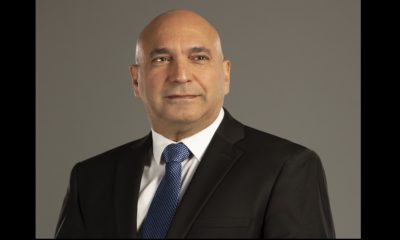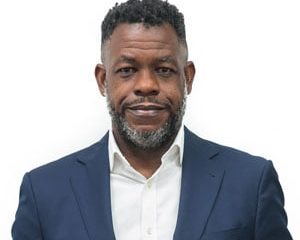In what way has the role of the CEO changed and what is the most significant measure of a CEO’s success?

The role of the CEO has undergone tremendous change in
recent times. The new era CEO needs to display strong
leadership skills rather than ‘management’ skills. The new
style CEO also has to be a visionary in outlook, rather than
one focused on implementing policy decisions. His/Her
success can be measured by the extent to which the
company’s management team buys into the vision and
objectives set and how they find ways to execute plans
creatively, whilst remaining cognizant of budget constraints.
Brian George CEO Supreme Ventures Limited
The CEO of any organisation can no longer be content with
only being an effective manager; it is imperative that the
successful CEO is also a visionary leader. As the team
leader responsible for the cohesiveness of the company, his
leadership must not be confined to his office and the board
room, but he should be actively engaged in the Management
By Walking Around (MBWA) principle.
Measures of the CEO’s success will include the growth and
profitability of the company, the strategic alliances
developed with stakeholders and the creation of an
environment where employees are safe and committed to
the company.
Grantley St. John Stephenson Chairman and Chief Executive Officer
Kingston Wharves Limited
The measure of a CEO’s success is to deliver shareholder
value and deliver steady growth. It is also critical for them to
lead in a manner consistent with the values of the company.
Keith Duncan Group CEO Jamaica Money Market Brokers Limited
The most significant measure of a CEO’s success is strategy
execution, leadership of the organization and
communicating the performance drivers, focus on the
creation of value for customers, agents, employees and the
community and buy -in of the company’s vision by its
employees. His/her ability to prepare the company for
change, respond as appropriate and keep the business viable
for the long-run are also measures of success of a CEO.
The CEOs do this through corporate social responsibility; the
stringent selection of public and private activities that the
company aligns itself with; proactive communication; the
implementation of recruitment strategies; accordance with
codes of ethics; leveraging of the brand and compliance to
the regulatory authorities. In terms of monitoring,
mechanisms have been introduced such as customer
perception survey, senior management interaction with
clients at branches and head office, the introduction of the
company’s website, location of branches, constant
communication, customer service treatment, such as turnaround
processing time for customers.
Rory O’Brien Group CEO Guardian Holdings Limited
The role of a CEO has become quite challenging as our
current regulatory environment requires significantly more
time and attention. It also requires a more aligned global
perspective for the CEO and the entire organization.
I would say that there are three measures of a CEOs success:
Demonstration of effective leadership of the organization,
effective management of the external environment and
sustainable improvement of shareholder value.
When I speak of leadership I am referring specifically to the
need to engage, inspire and motivate an organization to do and
deliver exceptional results.
Effective internal management speaks to building and developing talent through avenues
such as:
• A Management Trainee Programme
• Frequent Talent Review Meetings for Junior andSenior Management
• Mentoring and coaching
• Allowing people to have an enterprising spirit in line with our company’s Guiding principles.
A CEO also has to manage other external factors that affect
the company’s obligations to Corporate Social
Responsibility and good Corporate Governance.
Michael Bernard, Managing Director of Carreras
Group Ltd.,
In the past, it may have been sufficient for a CEO to
understand his or her business well in order for them to be
successful. The pace of change in the current environment is
so rapid and the extent of the changes that occur have been
significant. A significant measure of the success of a CEO
will be the ability of the CEO to anticipate and adapt to the
changes that will inevitably affect the business. The CEO
should also be measured on his or her ability to establish
internal structures to manage change and to prepare his or
her team to deal with ongoing changes.
William “Bill’ Clarke Group Managing Director Scotiabank Jamaica
In the context of today’s economy, business leaders must be
as concerned with the sustainable growth of their
communities as well as with the growth of their businesses.
As the business landscape changes and companies in the
Caribbean face competition from the US, Europe and Latin
America, CEOs must be ready to invest in the development
of their host communities and build lasting relationships
which would contribute to the sustainability of their
companies. The CEO, therefore, now has to become more
external facing, connecting his company with the
community. Managing this symbiotic relationship as both
continues to grow is the key to true success.
Ultimately the successful CEO is measured by his ability to
grow the organization sustainably and to position it for
growth beyond his tenure.
Suresh Sookoo, Group CEO RBTT Financial Holdings Limited
Do CEOs do enough to safeguard their company’s reputation, and what monitoring measures are in place to protect the company’s household name?
In safeguarding the company’s reputation, one major role of
the CEO is to steer the company’s strategic and operational
plans within the tenets of good corporate governance
principles. Every manager is made accountable for their
area of responsibility, having been challenged to embrace
and ‘buy into’ the corporate governance principles adopted
for the company.
The CEO is also the face and spokesman
for the organization. The CEO must ensure that a strong
Marketing Communications team is in place for the
organization. A close relationship must exist with the
Communications/Public Relations arm of the organization.
A communications policy framework must be in place to
protect the company’s identity and efforts made to minimize
the need for damage control situations at any time.
Brian George CEO Supreme Ventures Limited
Recognizing the importance of safeguarding the company’s
reputation, at KWL we constantly strive to ensure that the
company delivers on its promises. Monitoring measures
employed by the CEO includes, regular meetings with
managers at all levels collectively and individually,
meetings with the external stakeholders in both the public
and private sector and with the internal stakeholders. In
these meetings feedback is solicited on how persons
perceive the company is being viewed and corrective action
is taken where appropriate.
Grantley St. John Stephenson Chairman and Chief Executive Officer
Kingston Wharves Limited
JMMB abides by sound ethical conduct and remains
committed to its core values and is guided by our
philosophy of unconditional love. We empower all team
members (including the CEO) to uphold our vision and we
find this the most effective way to ensure that we are
operating in a manner consistent to our values.
Keith Duncan Group CEO Jamaica Money Market Brokers Limited
Our shareholders demand that the Company implements
and adheres to best governance practices. The market tends
to reward those companies through price and demand for
the stock. A natural consequence is that one of the CEO’s
critical mandate becomes the need to safeguard the
company from activities that would/could tarnish the
company’s reputation.
CEO’s role has changed from one of management based on
financial outcomes only to one of balanced scorecard which
supports a shared vision of future goals; management
systems which support growth strategy and alignment of
employees’ to strategy, in order to acquire, retain and deepen
relationship with our customers.
Rory O’Brien Group CEO Guardian Holdings Limited
In general, a CEO is paid to ensure that confidence is
instilled in the management of the company and that the
highest levels of ethics and integrity is practiced in our
dealings with the company’s employees, customers,
consumers, shareholders and other stakeholders such as
Government.
At Carreras, we have a robust monitoring mechanism called
the Corporate Responsibility Review which is a structured
dialogue session geared towards listening, understanding
and responding to our stakeholders’ expectations.
Our Company’s Statement of Business Principles is
testimony to the fact that we genuinely believe in meeting
and engaging with our stakeholders and partners who
influence our business such as the Jamaica Bureau of
Standards, the Ministry of Health, Ministry of Finance and
Planning and the Private Sector of Jamaica.
Our company has a structured Corporate Social Investment
policy that supports the areas of Crime Prevention, Adult
Education, the Arts and Culture and the Environment.
Some of Carreras’ corporate social investment in Jamaica
includes giving back to society by way of support for
organizations such as the Dispute Resolution Foundation,
the Forestry Department, the Carreras Postgraduate
Scholarship, the Carreras Amateur Artists Support
Programme, the Jamaican Language Unit and the National
Dance Theatre Company.
Michael Bernard, Managing Director of Carreras
Group Ltd.,
I do believe that CEO’s in Jamaica are treating the issue of
reputational risk more seriously than was the case in the
past. A company’s reputation in one of its most valuable
assets. Information is so widely available and accessible
that any issue which negatively affects a company’s
reputation can have a significant impact on the market value
and profitability of that company. Investors and consumers
will be less willing to invest in, or do business with,
companies that do not have good reputations.

The CEO should also be measured on his or her ability to establish internal structures to manage change and to prepare his or her team to deal with ongoing changes. William “Bill’ Clarke Group Managing Director Scotiabank Jamaica
We are cognizant of the effect that reputational risk can pose
to our business and I therefore ensure that there are
appropriate measures in place to effectively manage that
risk. We have therefore established a unit to pay closer
attention to all aspects of operational risk (which often
results in reputational risk) and the establishment of a new
product risk assessment team to assess and mitigate the risk
that new products and services my create.
William “Bill’ Clarke Group Managing Director Scotiabank Jamaica
Reputation is built on trust. And trust is earned. Only when
companies consistently deliver to stakeholders the results
they have promised, will they begin to earn trust. Also
critical, is the extent to which companies proactively
engage stakeholders employees, shareholders, customers,
government etc., in regular and open dialogue.
Communication is a key link to the upholding of one’s
reputation.
In addition companies need to keep abreast of the issues
affecting stakeholders, as these relate to the organization,
and the stakeholders need to be kept informed of how
companies are addressing these challenges. When these
principles are upheld on all sides will the company’s
reputation, not only be protected, but enhanced.
Suresh Sookoo, Group CEO RBTT Financial Holdings Limited

 Businessuite Markets2 weeks ago
Businessuite Markets2 weeks ago
 Businessuite News242 weeks ago
Businessuite News242 weeks ago
 Leadership Conversations4 days ago
Leadership Conversations4 days ago
 Businessuite Markets2 weeks ago
Businessuite Markets2 weeks ago
 Logistics & Transportation2 weeks ago
Logistics & Transportation2 weeks ago
 Businessuite Markets2 weeks ago
Businessuite Markets2 weeks ago
 Businessuite News24 International3 weeks ago
Businessuite News24 International3 weeks ago
 Businessuite Markets2 weeks ago
Businessuite Markets2 weeks ago









